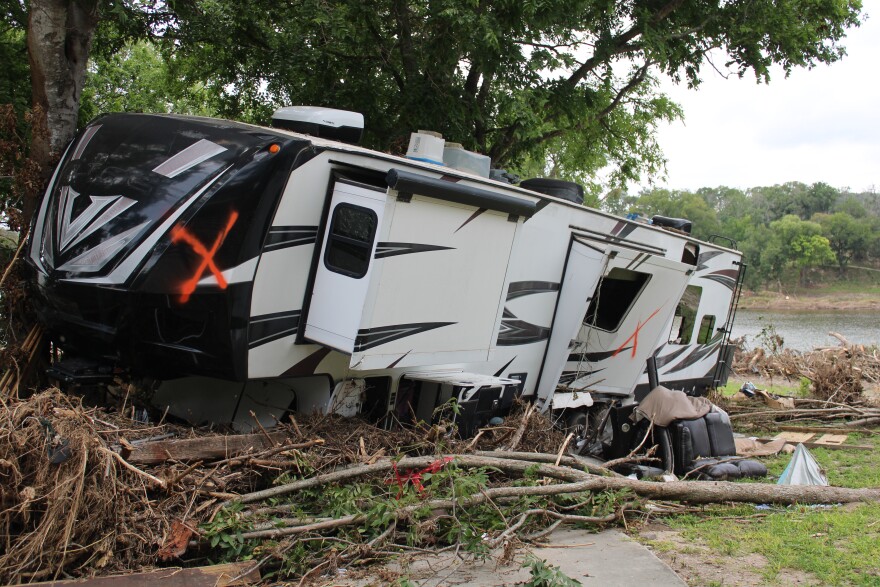Sign up for TPR Today, Texas Public Radio's newsletter that brings our top stories to your inbox each morning.
The Federal Emergency Management Agency has tips for survivors of natural disasters whose applications for financial assistance were rejected or the aid they received was not as much as they needed.
Review the guidance below, which FEMA provided in a recent statement. It is included here verbatim.
You applied for FEMA disaster assistance and received a decision letter explaining what money you are approved for. You believe you should have received more money to help with your recovery. You have 60 days to ask FEMA to reconsider any decision or award amount.
Under the major presidential declaration for the July 2--18 storms and flooding, six counties were designated for FEMA assistance: Burnet, Kerr, San Saba, Tom Green, Travis and Williamson. Whether you’re a homeowner, renter, student or visitor, here are some suggestions on how to ask FEMA to review their decision on your application.
Carefully read FEMA’s letter
- If you disagree or have questions about the amount you received or the types of assistance approved, it could be that something is missing from the documents you provided. Read FEMA’s letter carefully to help you understand what the agency is requesting from you.
How do I appeal FEMA’s decision?
- You can appeal any FEMA decision or award amount by sending documents that show you qualify for assistance and need more help. You may send estimates for repairs, receipts, bills, etc. Each decision letter you receive from FEMA explains which documents may help you appeal FEMA’s decision.
- Supporting documents may include:
- receipts
- bills
- repair estimates
- property titles or deeds, or
- any other information that may support your reasons for the appeal.
Do I have to send any other documents?
- If you choose to provide additional information to explain why you are appealing, send a signed and completed Appeal Request Form, which is included in your FEMA decision letter.
- Appeals must be submitted within 60 days of the date on the FEMA decision letter.
What should I include with documents I send to FEMA?
- All documents you send to FEMA as part of your appeal should include your:
- full name
- current phone number and address
- disaster number (DR-4879-TX)
- your FEMA application number written on all pages, and
- address of the disaster-damaged home.
- Receipts, bills and estimates must include the business name and contact information to help FEMA verify the information.
Can someone appeal for me?
- If you send a written appeal that is prepared by someone other than you, it must include that person’s signature. FEMA will need your written permission to share information about your application. You can do this by completing an Authorization for the Release of Information Under the Privacy Act form and sending it to FEMA.
How do I send documents to FEMA?
- There are several ways to send appeals and supporting documents to FEMA:
- Upload to your disaster assistance account at DisasterAssistance.gov.
- Mail: FEMA, P.O. Box 10055, Hyattsville, MD 20782-8055.
- Fax: 800-827-8112.
- Visit any Disaster Recovery Center to receive in-person assistance. To find a recovery center close to you, use your ZIP code to search FEMA.gov/DRC.
What you can expect after submitting your appeal
- You submitted an appeal to FEMA within 60 days of FEMA’s decision letter or award amount. Now what? Once FEMA receives your appeal, the agency may schedule an inspection of your primary home. At any rate, you can expect a decision from FEMA within 90 days.
Other resources
- For answers to your questions about appeals, call the FEMA Helpline at 800-621-3362. Lines are open from 6 a.m. to 10 p.m. CT daily. If you use a relay service, captioned telephone or other service, you can give FEMA your number for that service. Helpline specialists speak many languages. Press 2 for Spanish.



